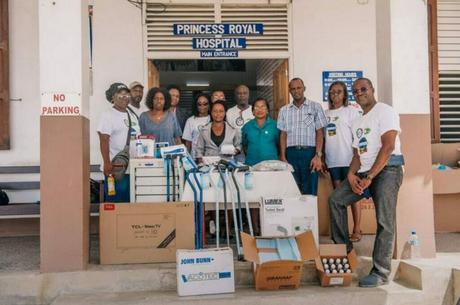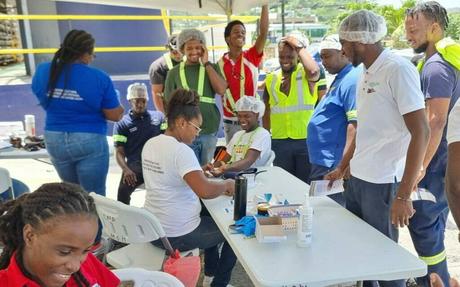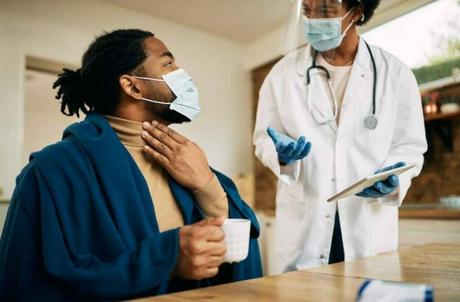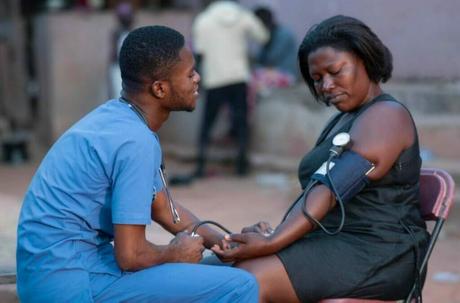Discovering Grenada’s healthcare system resembles navigating the unexpected, yet invaluable treasures of this delightful island.
From the General Hospital in St. George’s, where specialists perform miracles, to the warm hug of Princess Alice Hospital and Princess Royal Hospital, prepared to really focus on all out of luck. In any case, Grenada’s healthcare isn’t just confined to hospitals; an organization of clinics and health centers dotting the island ensures everybody can access quality consideration. St. George’s University shines splendid, training future healthcare professionals and igniting the spark of innovation. The amicability between the public and private sectors is the island’s secret, with both complementing each other to ensure ideal consideration for all.
PopulationApproximately 112,523 (as of 2021)
Life Expectancy73.7 years (males), 77.9 years (females)
Infant Mortality Rate10.4 deaths per 1,000 live births (2021)
Healthcare Expenditure (GDP)5.9% of GDP (2019)
Physicians Density2.1 physicians per 1,000 people (2019)
Nurses Density6.7 nurses per 1,000 people (2019)
Hospital Beds4.2 beds per 1,000 people (2019)
Key health indicators demonstrate the effectiveness of their efforts, yet challenges remain, and the public authority continues to wind around healthcare reforms to make a healthier paradise for each Grenadian.
Healthcare Infrastructure

In Grenada, healthcare infrastructure is an intricate organization that serves the island’s populace, yet additionally, visitors who could require clinical consideration during their stay. First on our list is the General Hospital in St. George’s, the island’s capital. This is the essential reference place for the island, boasting specialist services like surgery, pediatrics, and obstetrics.
Secondary healthcare services are conveyed through the Princess Alice Hospital and Princess Royal Hospital, both adroit at handling less intricate clinical issues. Princess Alice, situated in the parish of St. Andrew, also serves as the principal clinical office for Grenada’s eastern parishes. Princess Royal, then again, is situated in Carriacou, providing healthcare to residents and visitors to the sister island.
Aside from hospitals, healthcare in Grenada is reinforced by its clinical clinics and health centers scattered across the island. These include both public health clinics offering general clinical benefits and private clinics focusing on more specialized care. The public authority has focused on keeping these facilities exceptional and staffed, ensuring that everybody on the island can get quality healthcare when they need it.
Grenada is also home to St. George’s University, which houses a prestigious School of Medicine. This provides training to future healthcare professionals, yet in addition, contributes to research and innovation in healthcare on the island. The accessibility of a committed research institution has strengthened the general healthcare infrastructure.
In addition, the Ministry of Health, Social Security, and International Business oversees the healthcare system, setting regulations and policies, and ensuring the execution of health programs. The Ministry also plays a significant job in managing public health threats and epidemics, as it did during the Coronavirus pandemic.
Public vs. Private Healthcare

The Grenadian healthcare system consists of both public and private healthcare sectors. The public sector is fundamentally financed by the public authority, with resources apportioned in the public financial plan. It aims to give comprehensive health services to all Grenadians, regardless of their capacity to pay. Services are either free at the point of conveyance or subsidized, making healthcare accessible to everybody.
Private healthcare, then again, offers a more personalized encounter. It includes private hospitals, clinics, and laboratories that charge patients for their services. These establishments often boast cutting-edge clinical technologies and offer a more extensive scope of services than public facilities, including elective procedures and specialized treatments.
While public healthcare is designed to be universally accessible, there can be issues such as longer hang-tight times for non-crisis procedures. Private healthcare, while offering speedier service, comes with a more exorbitant cost tag. Numerous Grenadians, especially those with a higher income, choose private health insurance to take care of these costs.
A harmony between the two sectors is urgent. The private sector complements the public sector, helping to reduce pressure on public resources. This equilibrium enables the healthcare system to work proficiently, ensuring everybody gets the consideration they need when they need it.
In any case, this dualistic system isn’t without its challenges. The public authority is constantly working on health reforms to address inequalities and improve coordinated efforts among public and private sectors to improve by and large healthcare service conveyance in Grenada.
Key Health Indicators

Grenada’s healthcare system has shown considerable progress throughout the long term, which is reflected in its key health indicators. The typical future in Grenada is around 73 years, slightly higher than the worldwide normal, indicative of a well-functioning healthcare system.
Maternal and youngster health indicators, too, reflect positive outcomes. The infant death rate has significantly decreased throughout the long term, demonstrating the effectiveness of maternal and youngster health programs executed by the Ministry of Health. The nation also has high vaccination inclusion, ensuring assurance against various preventable diseases.
Non-communicable diseases (NCDs), such as diabetes and coronary illness, are the leading cause of death in Grenada. To battle this, the Ministry of Health has initiated several NCD anticipation programs. Efforts are also being made to advance healthy lifestyles among the populace.
Grenada’s healthcare system also successfully manages infectious diseases, including HIV/AIDS, and has shown a fast and coordinated response to new public health crises, such as the Coronavirus pandemic.
Despite these positive indicators, Grenada faces ongoing challenges, especially regarding NCDs, emotional well-being, and natural health. In any case, the public authority continues to focus on health planning to address these issues.
Access to Healthcare Services

Access to healthcare services in Grenada is vital for the public authority, aiming to ensure each Grenadian has the capacity to obtain the health services they need. The island has an extensive organization of health centers and clinical stations, providing essential healthcare services within easy reach of most communities.
The public health insurance scheme plays a significant job in enhancing accessibility, especially for low-income individuals and families. It allows Grenadians to access essential health services, often at no immediate cost at the point of conveyance.
Crisis services in Grenada are robust and responsive. The island is furnished with an effective emergency vehicle service, including a sea-emergency vehicle for the sister islands, ensuring basic consideration is reachable for everybody. For the older and those with disabilities, efforts have been made to ensure healthcare facilities are accessible and well disposed of, demonstrating an inclusive way to deal with healthcare.
Telemedicine is also on the rise, spurred by the Coronavirus pandemic, helping individuals in distant areas or those unfit to visit health centers in person to get care. This innovative methodology has significantly broadened access to healthcare services.
Despite these efforts, some challenges persist. Some provincial areas need easy access to secondary and tertiary consideration, and certain specialized treatments are not promptly accessible on the island. Be that as it may, the public authority continues to chip away at strengthening the healthcare system and addressing these gaps, with a vision for universal health inclusion.
FAQ

Is healthcare good in Grenada?
Healthcare in Grenada is generally satisfactory, with significant improvements in key health indicators like life expectancy and maternal and child health. The country has a well-organized healthcare system comprising both public and private sectors, providing accessible and comprehensive services. However, challenges persist, particularly concerning non-communicable diseases (NCDs) and mental health issues.
Which Caribbean island has the best healthcare?
Determining the Caribbean island with the “best” healthcare is subjective and can vary depending on specific criteria. Islands like Barbados, the Bahamas, and the Cayman Islands are often recognized for their relatively well-developed healthcare infrastructures and quality services.
What are the health issues in Grenada?
Grenada faces health challenges, primarily related to non-communicable diseases (NCDs), such as diabetes, cardiovascular diseases, and hypertension. Mental health is also a concern, along with environmental health issues, including waste management and vector-borne diseases. The government actively addresses these issues through various prevention programs and healthcare reforms.

